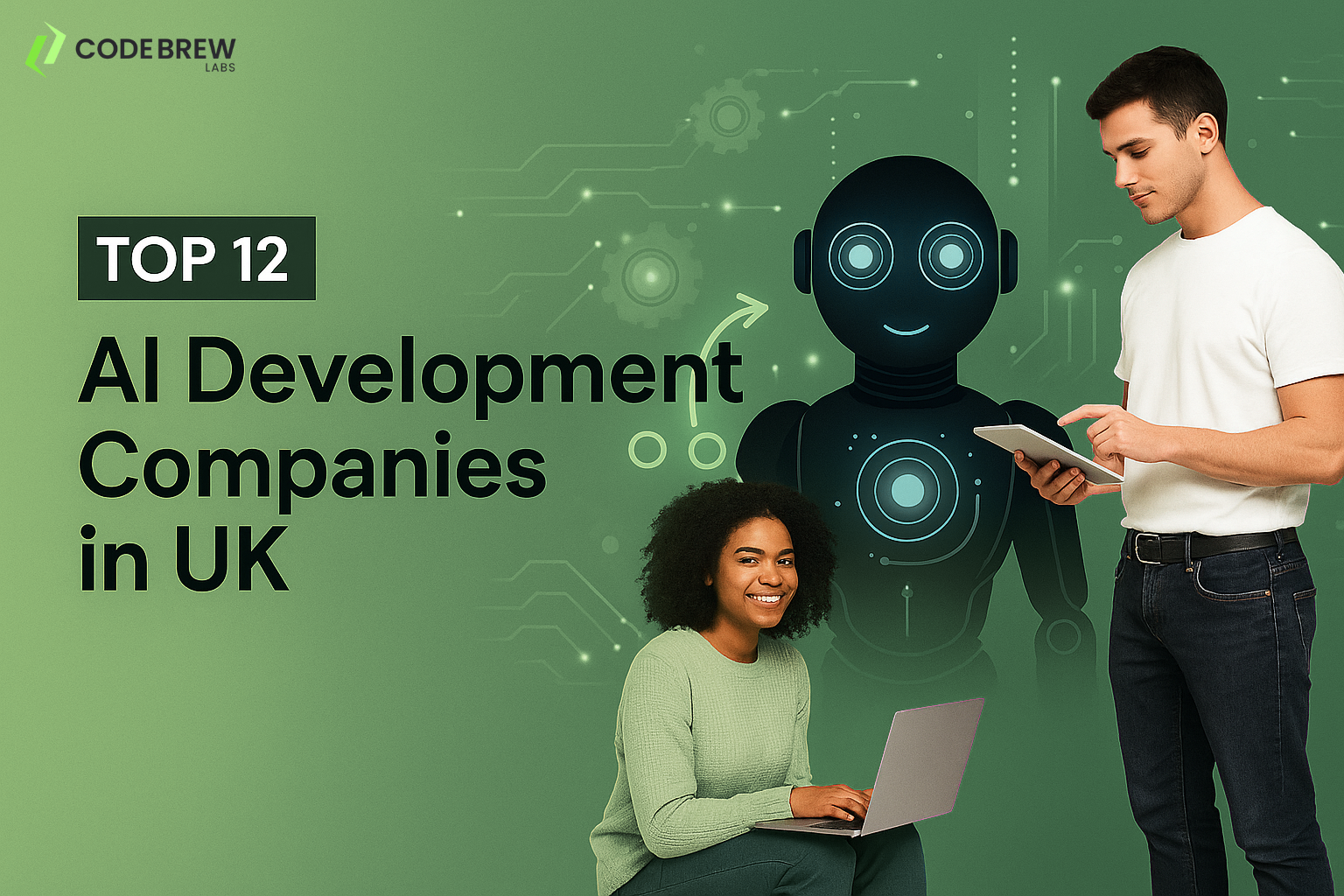
UK businesses are entering a new era where smart technology is central to growth and innovation. In 2025-26, Artificial Intelligence is helping companies make faster decisions, streamline operations, and deliver better experiences to their customers. From automating routine tasks to uncovering insights hidden in data, AI is becoming a core tool for organisations that want to stay ahead in a competitive market.
Table of Content
The UK has become one of Europe’s strongest AI markets, supported by tech talent, startups, and government backing. As demand grows, more organisations are searching for the best AI development company to help them turn smart ideas into working solutions that deliver real results.
This article highlights the top AI development companies in the UK for 2025-26. It explains what makes a company truly stand out, key trends shaping the market, and how to find the right partner for your business needs.
A great AI company doesn’t just build software — it creates real business value. What sets the best apart is their mix of skill, experience, and understanding of how AI can solve real-world problems.
Here’s what makes a top AI development company:
These qualities matter because choosing the right AI partner means faster results, fewer risks, and more value for your investment.
AI adoption in the UK is growing fast. Cities like London, Manchester, and Cambridge are turning into AI hubs where businesses are investing heavily in automation and innovation.
Top trends shaping the market include:
Leading sectors: finance, healthcare, e-commerce, government, and manufacturing.
Main challenges: shortage of AI talent, data quality issues, and integration with old systems.
This is why having the right AI development partner is so important — the right team helps you navigate complexity and build solutions that truly work for your business goals.

Code Brew Labs is a full‑service digital innovation agency that also builds AI/ML solutions at scale. Although founded outside the UK, they maintain a strong UK‑market presence and partner with UK clients for custom‑built AI systems. They specialise in mobile and web apps with integrated AI agents, large‑language‑model deployment, data‑driven decision‑support dashboards, and full‑lifecycle product development.
Key strengths: They deliver end‑to‑end services—from ideation to deployment to monitoring. Their development team navigates diverse technology stacks (TensorFlow, PyTorch, cloud services) and they emphasise business‑value outcomes, not just model builds. Their global delivery capability gives UK businesses access to flexible resourcing without sacrificing local engagement.
Why they appear on this list: For UK organisations seeking the best AI development company that can handle everything from strategy through to a working AI solution, Code Brew Labs stands out. They combine technical depth, strong project management, and a global delivery footprint, making them a practical choice for ambitious UK projects in 2025‑26.

Royo Apps focuses on AI‑enabled mobile and digital platform projects. Their speciality spans retail, logistics, real estate, delivery, e‑learning, and gaming verticals. They build platforms with embedded AI components (such as recommendation engines, route optimisation, and user‑behaviour modelling) and bring a rapid delivery experience to UK clients.
Key strengths: Their major asset is domain versatility—they’ve worked across many industries, so they bring lessons learned from one sector into another. They also emphasise scalability: their platforms serve large user bases and integrate smoothly with legacy systems or new microservices architecture. They have the agility of a mid‑sized partner, which appeals to UK firms looking for speed and flexibility.
Why they appear on this list: For UK businesses—especially mid‑sized or growth‑stage ones—that need a partner to deliver an AI‑infused digital product without the complexity of a large consultancy, Royo Apps appears among the top choices. Their focus on platforms and speed of execution earns them a place as one of the leading AI development companies in the UK for 2025‑26.
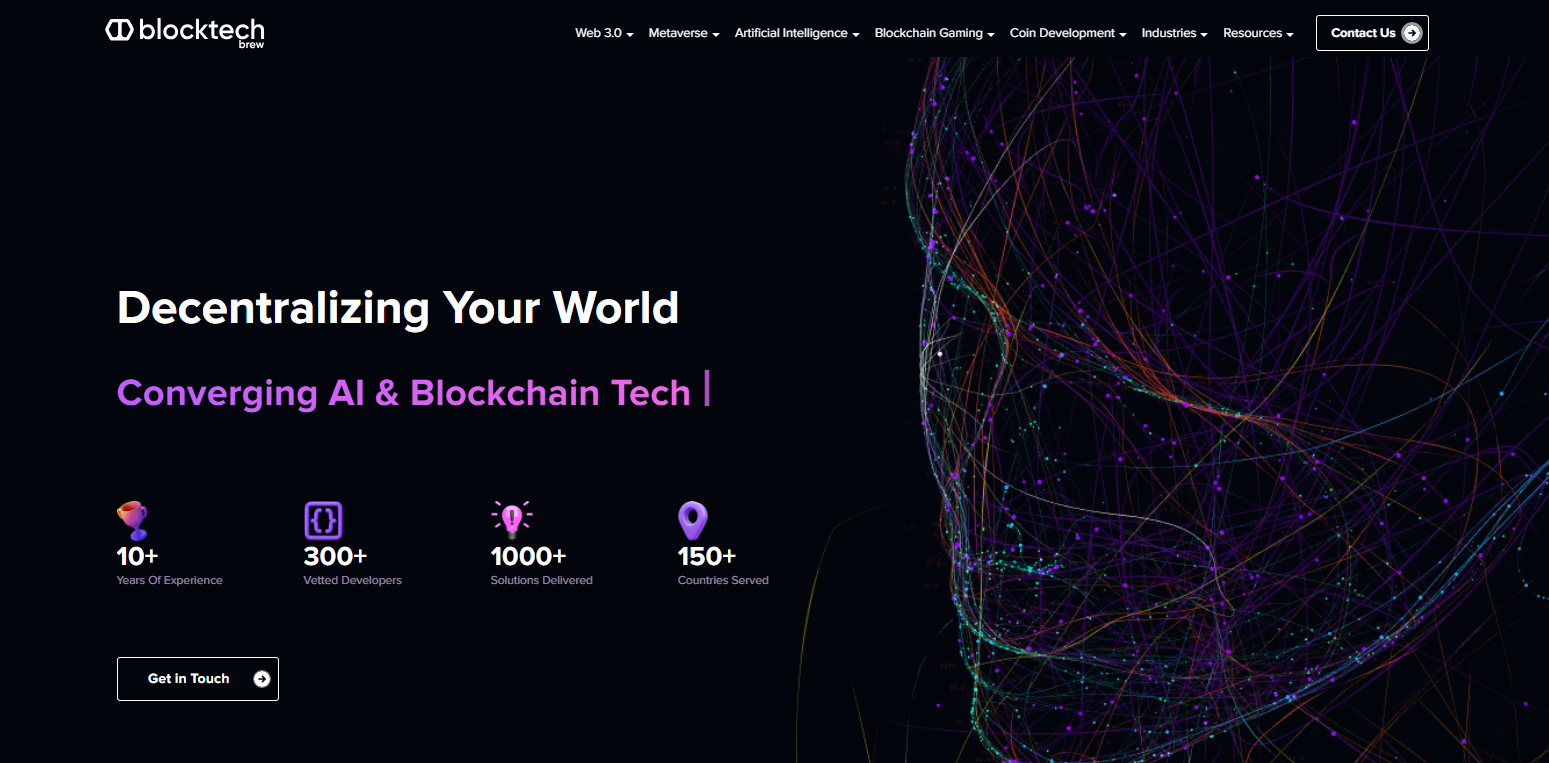
Blocktech Brew defines itself as an “AI development company” with core expertise in machine learning, deep learning, NLP, computer vision, generative‑AI models, and emerging tech combinations (e.g., Web3, blockchain). While not purely UK‑native, they serve UK clients and target forward‑looking use‑cases in 2025‑26.
Key strengths: They stand out for their emphasis on generative and adaptive AI systems—models that don’t simply run predictions but evolve and respond dynamically. They bundle cloud scalability, multi‑framework tech (TensorFlow, PyTorch, etc.), and are comfortable crossing into frontier domains (metaverse, decentralised architectures). This makes them well-suited for UK firms looking to experiment and move ahead of the curve.
Why they appear on this list: With UK businesses increasingly seeking not just “AI” but next‑gen applications (e.g., generative modelling, computer vision), Blocktech Brew positions itself as a partner that bridges today’s solutions and tomorrow’s innovation. Their mix of ambition + technical readiness earns them recognition among the top UK‑accessible AI development companies for 2025‑26.

PolyAI, headquartered in London, is a conversational‑AI company specialising in advanced voice assistants and customer‑service automation for enterprises. Their technology enables natural‑language voice bots that handle complex dialogues, interruptions, and user intent changes—moving beyond simple chatbots.
What they specialise in: Conversational AI for customer support teams, voice assistants for enterprises, and multilingual and multi‑turn dialogue systems. They apply deep‑learning models to speech, semantics, and conversational context.
Key strengths: PolyAI’s strength is in delivering enterprise‑grade systems that operate in real‑world contact‑centre environments—handling high volume, real human variability, and integration with CRM/back‑office systems. They also have experience in UK/European regulation and localisation, which matters for UK clients.
Why they appear on this list: In 2025‑26, businesses are increasingly looking not just at “any AI” but AI that touches meaningful business operations (like customer service). PolyAI’s maturity and UK presence make it a strong pick among AI development companies for UK organisations seeking advanced conversational solutions.
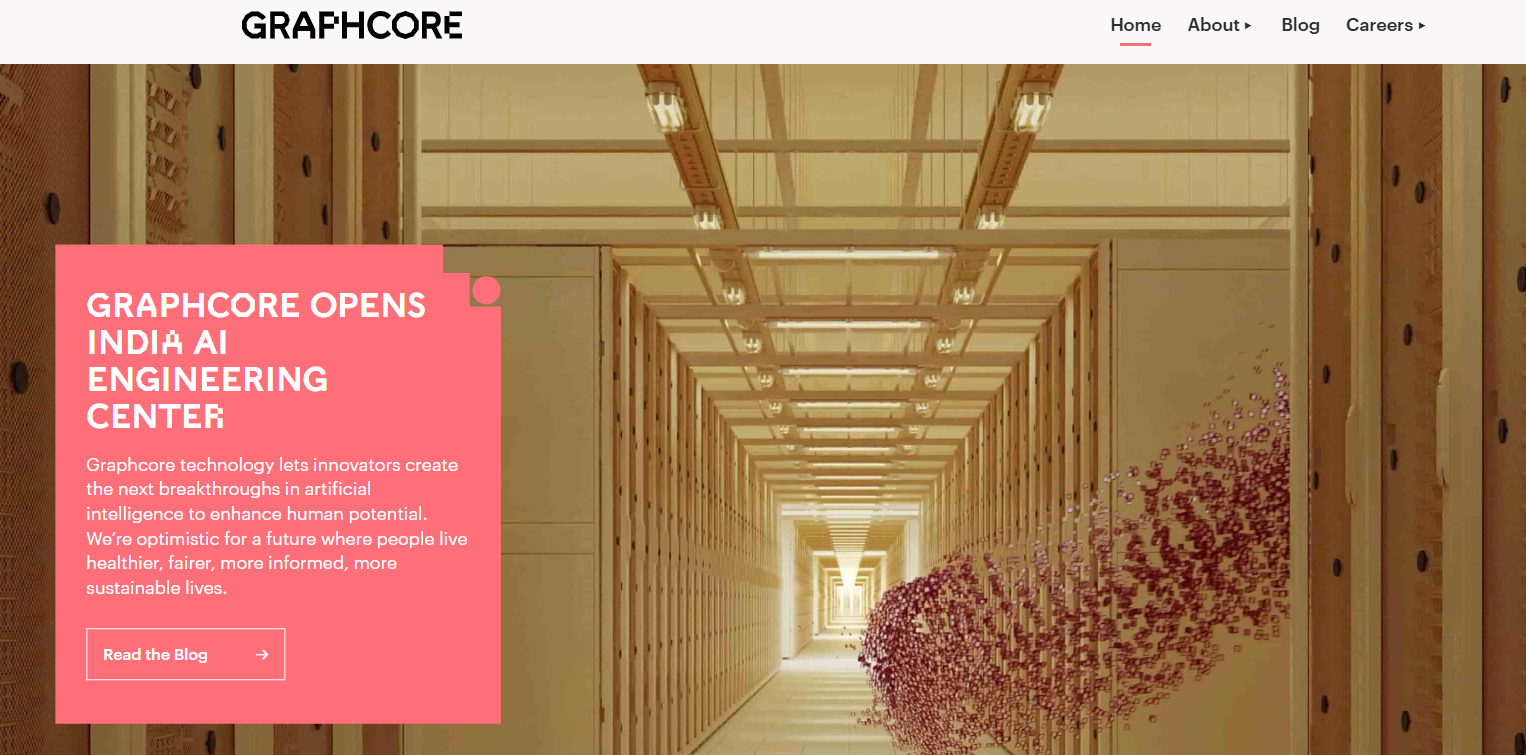
Graphcore, based in Bristol, UK, is a hardware‑and‑software company whose Intelligence Processing Unit (IPU) architecture is designed specifically for AI workloads. While more hardware‑oriented than purely “service” oriented, their ecosystem enables AI firms to build high‑performance models and deploy them at scale.
What they specialise in: AI infrastructure—custom hardware (IPUs), software tooling, and development frameworks aimed at large‑scale model training and deployment. They serve enterprises and research labs across sectors that require high computing power.
Key strengths: UK‑based, deep technical leadership, bridging the gap between model research and industrial deployment. For UK businesses investing in heavy AI workloads (e.g., manufacturing, fintech, science), access to this capability within the UK ecosystem offers value.
Why they appear on this list: While many companies provide AI development services, Graphcore supports the underlying infrastructure that powers advanced AI. Their presence in the UK makes them an important link in the AI chain, so UK businesses seeking full‑stack AI (model + infrastructure) should consider them when selecting a partner.

InstaDeep is a London‑based AI company that builds decision‑making systems and optimisation frameworks for enterprises—particularly in logistics, life sciences, and manufacturing. Their solutions combine reinforcement learning, simulation, and optimisation.
What they specialise in: AI systems that support complex decision‑making (not just prediction) — e.g., scheduling, routing, resource allocation under uncertainty, multi‑agent systems. They also provide production‑grade deployment capabilities.
Key strengths: They bring a strong AI research pedigree, integrate with real business operations, and deliver scalable results. UK‑based operations make them accessible to UK businesses looking for serious AI beyond a prototype.
Why they appear on this list: For UK firms with challenging operational problems (e.g., manufacturing line scheduling, pharmaceutical trials, supply‑chain logistics) InstaDeep is a leading option. Their ability to move from research to deployment gives them a spot among the UK’s top AI‑development partners in 2025‑26.

Sylvera is a London‑based company focusing on AI‑driven climate and carbon‑market analytics. They provide tools and data to help organisations measure, monitor, and invest in carbon‑offset projects using machine learning and satellite imagery.
What they specialise in: AI for climate—satellite‑image analysis, predictive modelling of emissions, risk scoring for carbon‑offset projects, and data‑driven decision‑support for ESG investors and corporates.
Key strengths: Deep domain expertise in climate/ESG, ability to combine AI models with remote‑sensing data, and a strong UK finance‑market connection (carbon markets, ESG reporting). They are also addressing a major UK/European business trend in sustainability.
Why they appear on this list: As UK businesses increasingly seek AI solutions for sustainability and regulatory compliance, Sylvera is a standout development partner in that niche. Their specialism and access to the UK context make them one of the top AI development companies for organisations looking to combine AI and ESG goals.

Wayve is a London‑based startup specialising in autonomous‑driving AI, using end‑to‑end deep learning for vehicles. While its domain is somewhat niche (automotive), the technology and scale‑thinking showcase how advanced AI services can reach deployment at scale.
What they specialise in: Autonomous driving software systems—training vision‑based “AI drivers” that learn from camera input rather than relying on hand‑coded maps. The goal is to scale self‑driving capabilities efficiently.
Key strengths: High‑end research capability, deep‑learning model deployment in the real world, a high scalability mindset, UK‑headquartered, and globally ambitious. Their work proves that AI development companies in the UK are not just services‑based but can lead to edge innovation.
Why they appear on this list: For UK businesses wanting an AI partner with serious technical heft and experience in high‑stakes, large‑scale deployments, Wayve is a strong reference. They represent what a top‑tier AI development company can look like when pushing boundaries.

Kainos is a UK‑based consulting and technology firm that has built a strong track record in delivering AI and data‑driven services for the public sector, healthcare, and commercial clients. They combine technology delivery, data engineering, and AI model deployment.
What they specialise in: AI & data engineering projects—particularly for government, healthcare, and regulated sectors in the UK. They deliver platforms, analytics, machine‑learning model integration, and post‑deployment support.
Key strengths: Strong UK market and public‑sector presence, governance experience (important in regulated spaces), and broad delivery capability. They blend consulting + delivery, which helps UK clients who may need both strategy and execution.
Why they appear on this list: Because for UK organisations—especially in public sector or regulated industries—choosing an AI‑development partner with UK‑compliance experience, governance awareness, and delivery maturity matters a lot. Kainos brings that and therefore earns its place among the top 12.
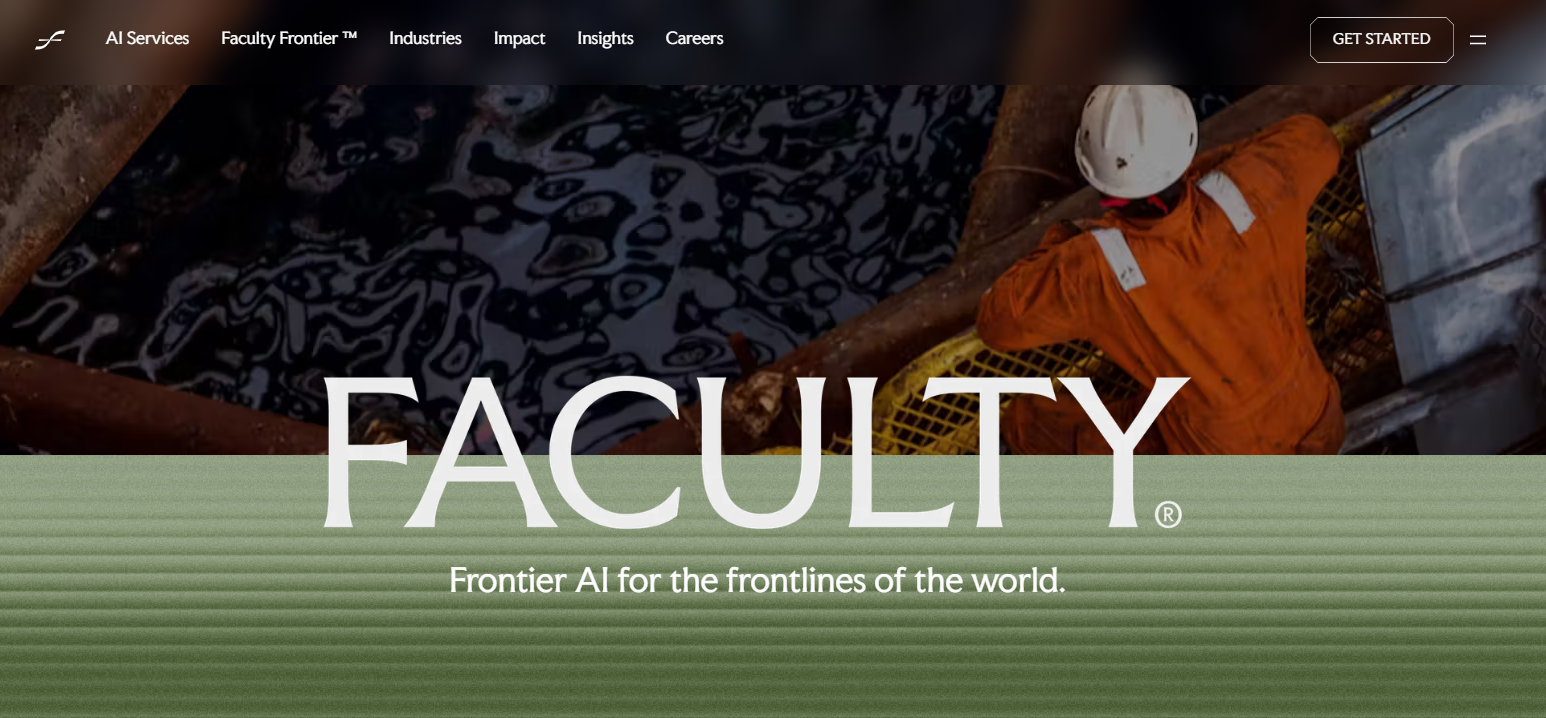
Faculty AI is a London‑based decision‑intelligence company that builds bespoke AI solutions for enterprises across sectors (defence, finance, energy, government). Their work emphasises model transparency, safety, and impact.
What they specialise in: Custom‑built AI solutions spanning strategy, development, deployment, and “AI governance”. They focus on decision‑intelligence—helping business leaders use AI to make better decisions, not just build models.
Key strengths: Their senior team has a research‑lab pedigree, they emphasise responsible and ethical AI, and they combine that with industry delivery. This makes them attractive to UK businesses looking for trustworthy AI partners with strong ethics and a track record.
Why they appear on this list: In 2025‑26, the term “AI development company” increasingly needs to include ethical, safe, and transparent practices. Faculty AI meets those requirements and thus stands among the best UK‑accessible AI development partners.

Synthesia is a UK‑headquartered generative‑AI video company (though the domain is media‑centric). They provide AI tools to create high‑quality video content automatically, with a focus on enterprise use (training, marketing, communications).
What they specialise in: Generative‑AI for video and media—using deep models to create lifelike human avatars, voice and video content. They serve enterprise clients who need scalable content creation solutions.
Key strengths: Strong UK base, leading status in generative AI, and enterprise‑ready tools. Although media‑centred, they show how AI development companies can build platforms with serious product maturity, not just one‑off models.
Why they appear on this list: For UK businesses looking to explore newer applications of AI (content creation, marketing automation, generative media), Synthesia represents one of the most advanced partners available locally. Their inclusion reflects the breadth of what “AI development” can mean in 2025‑26.
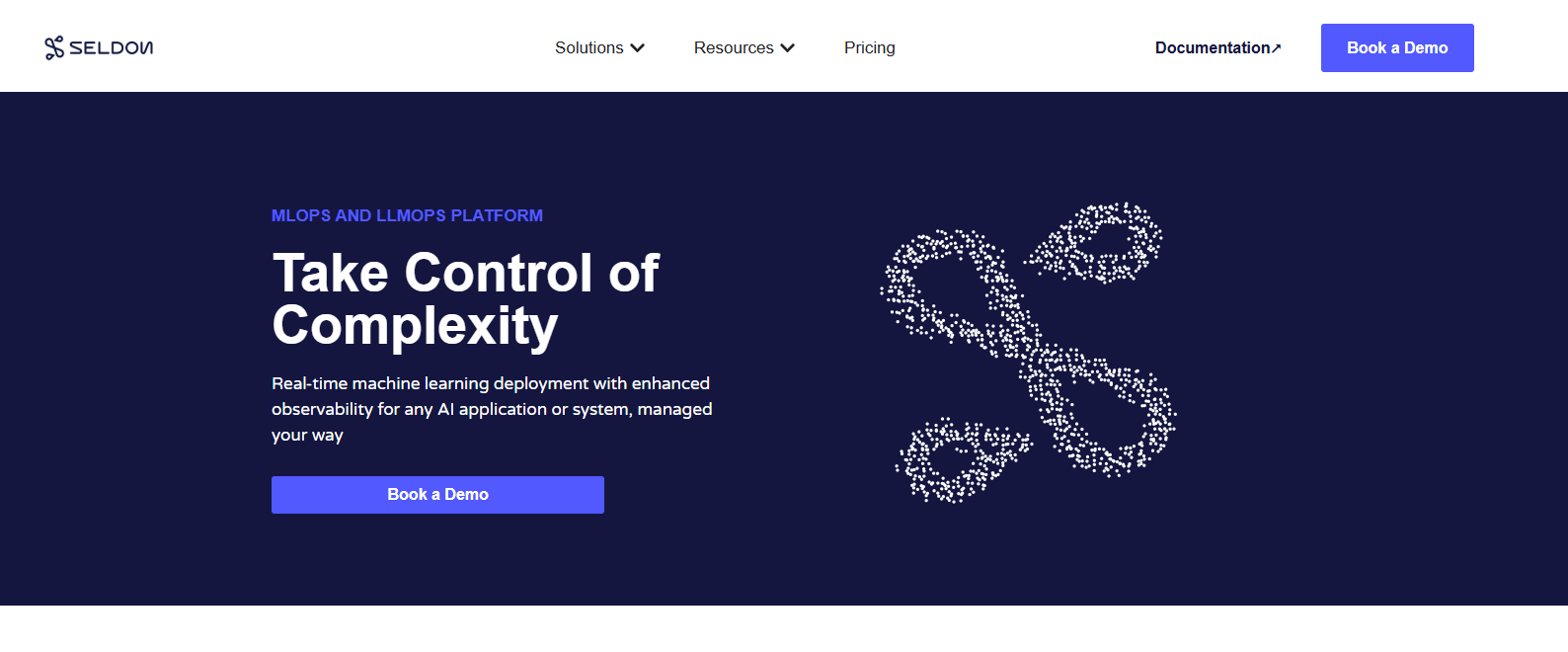
What they specialise in: Seldon is a UK-based company focused on MLOps, model deployment, and AI infrastructure. They help businesses move from AI prototypes to fully operational systems, ensuring models run reliably at scale. Their solutions cover model monitoring, versioning, governance, and integration with cloud or on-premise environments.
Key strengths:
MLOps expertise: Seldon excels at automating model deployment and lifecycle management, reducing errors and accelerating time-to-market.
Scalability and reliability: They build frameworks that allow AI models to operate smoothly under real-world conditions, supporting large datasets and multiple models simultaneously.
Regulatory and ethical compliance: With a UK base, Seldon is experienced in implementing AI governance, data privacy, and audit-ready solutions that comply with UK and EU standards.
Open-source leadership: They contribute to open-source projects (like Seldon Core), giving businesses access to trusted, community-driven tools for AI deployment.
Why they appear on this list: In 2025‑26, UK businesses need more than just model development—they need operational AI that works reliably day-to-day. Seldon Technologies fills this gap, providing the infrastructure, governance, and MLOps capabilities that make AI projects sustainable and scalable. For organisations seeking a partner to deploy, monitor, and scale AI models efficiently, Seldon is a top choice among UK AI development companies.
Choosing the right AI-development partner can make or break your project. Not all AI companies are the same, so it’s important to match your business goals with a partner’s strengths. For example, some companies specialise in custom AI model development, while others excel at analytics platforms or workflow automation. Picking the right fit ensures faster results and a smoother journey.
Key questions to ask potential partners:
Red flags to watch out for:
Practical checklist:
By following this checklist, you increase the likelihood of finding a partner who will deliver value and help your AI project succeed.
Successfully implementing an AI project requires structured planning and collaboration. Here are the key steps and best practices:
Following these steps helps your AI initiative move from concept to tangible business results while minimising risks and maximising adoption.
AI development in the UK is entering an exciting new phase. Emerging technologies such as foundation models, edge AI, and privacy-preserving AI approaches are transforming how companies design and deploy solutions. Foundation models allow businesses to build powerful AI applications from pre-trained systems, while edge AI moves processing closer to devices, enabling faster, real-time decisions. Privacy-focused AI ensures sensitive data is protected, meeting UK and EU regulatory requirements.
The role of AI-development companies is also evolving. Beyond coding and model building, these partners are becoming strategic advisors, helping businesses integrate AI into their operations, governance frameworks, and decision-making processes. They are expected to support ethical AI use, ensure regulatory compliance, and guide companies in measuring AI’s business impact.
UK businesses should prepare by investing in skills, infrastructure, and data governance practices. Upskilling teams in AI literacy, ensuring scalable cloud or edge infrastructure, and staying up-to-date with regulatory changes will be crucial. Organisations that plan will be better positioned to leverage AI for growth, efficiency, and innovation in the coming years.
Artificial Intelligence is no longer optional — it’s central to business competitiveness in the UK. The top 12 AI development companies listed in this guide provide a starting point for organisations seeking trusted partners to navigate this complex landscape.
Key takeaways:
Next steps:
AI is a journey, not a one-time project. Share your experiences, ask questions, and learn from peers as you explore AI solutions. Starting small, measuring outcomes, and scaling responsibly will help you make AI a true driver of business growth.
Q1. How do I know which AI development company is right for my business?
Match their expertise to your business goals, check case studies, team skills, tech stack, and experience in your industry.
Q2. Do UK businesses need to worry about AI regulations?
Yes. UK and EU regulations on data privacy, AI ethics, and security are important and should be considered when selecting a partner.
Q3. What’s the best approach to start an AI project?
Begin with discovery, define the problem and business value, run a pilot, and then scale iteratively with continuous monitoring.
Q4. How long does it take to see results from an AI project?
It depends on complexity, data readiness, and solution scope. Pilot projects may take weeks to months, while enterprise-scale deployments can take longer.
